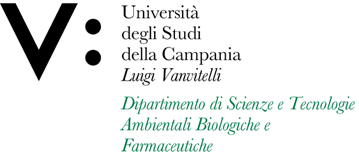Simona CASTALDI
Insegnamento di ECOLOGIA APPLICATA AI SISTEMI AGRARI E FORESTALI
Corso di laurea in SCIENZE AGRARIE E FORESTALI
SSD: BIO/07
CFU: 6,00
ORE PER UNITÀ DIDATTICA: 48,00
Periodo di Erogazione: Secondo Semestre
Italiano
| Lingua di insegnamento | ITALIANO |
| Contenuti | Questo modulo approfondisce le conoscenze acquisite nel corso di ecologia di base, con un’analisi dettagliata delle relazioni quantitative tra i fattori ambientali, naturali ed antropici, e la struttura e funzionamento degli ecosistemi agricoli e forestali. Particolare focus verrà dato all’analisi dei servizi forniti dalle diverse componenti degli ecosistemi agricoli e forestali. Si approfondiranno inoltre le principali sfide del secolo connesse al ruolo dell’agricoltura come fonte di sostentamento mondiale e negli equilibri planetari. Si tratteranno i concetti chiave di agricoltura sostenibile con esempi di casi studio. Si introdurrà lo studente ai concetti di certificazione ambientale volontaria, impronta del carbonio, impronta idrica, impronta dell’azoto. |
| Testi di riferimento | Principles of terrestrial ecosystem ecology- Author: F. Stuart Chapin III, Pamela A. Matson, Harold A. Mooney. Springer |
| Obiettivi formativi | L'obiettivo di questo modulo è quello di approfondire la conoscenza della relazione che esiste tra la struttura ed il funzionamento di un ecosistema agricolo e forestale e le variabili ambientali ed antropiche che lo influenzano. Il corso approfondisce il ruolo dei sistemi agricoli e forestali nella sostenibilità planetaria, e fornisce esempi di gestione sostenibile nonché di indicatori di sostenibilità ad oggi maggiormente in uso. |
| Prerequisiti | La conoscenza e le abilità acquisite durante i corsi di Chimica Generale e Inorganica, Chimica Organica, Ecologia sono fondamentali. |
| Metodologie didattiche | Lezioni frontali di tipo teorico con esempi numerici |
| Metodi di valutazione | Esame orale a fine corso |
| Programma del corso | 1. Il Ciclo del carbonio negli ecosistemi agricoli. |
English
| Teaching language | Italian |
| Contents | This module deepens the knowledge acquired with the course of basic ecology, by exploring the quantitative relationships between environmental, natural and anthropic factors, and the structure and functioning of agricultural and forest ecosystems. Particular focus will be given to the analysis of the ecosystem services offered by the different components of agricultural and forest ecosystems. The main challenges of the century related to the role of agriculture as a source of global sustenance and in planetary balances will also be explored. The key concepts of sustainable agriculture will be discussed with case study examples. The student will be introduced to the concepts of voluntary environmental certification, carbon footprint, water footprint, nitrogen footprint. |
| Textbook and course materials | Principles of terrestrial ecosystem ecology- Author: F. Stuart Chapin III, Pamela A. Matson, Harold A. Mooney. Springer |
| Course objectives | The aim of this module is to deepen the knowledge of the relationship that exists between the structure and functioning of an agricultural and forest ecosystem and the environmental and anthropic variables that influence it. The course provides a knowledge about the role of the agroforestry sector in the planetary sustainability, and provides examples of sustainable management as well as sustainability indicators that are mostly used today |
| Prerequisites | The knowledge and skills acquired during the courses of General and Inorganic Chemistry, Organic Chemistry and Ecology are fundamental. |
| Teaching methods | Theory Lessons with some case studies with numerical examples |
| Evaluation methods | Oral exam |
| Course Syllabus | 1. The carbon cycle in agricultural ecosystems. |








